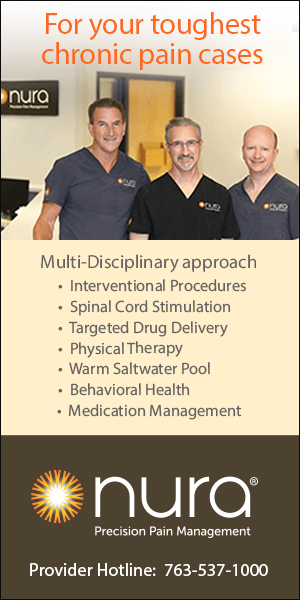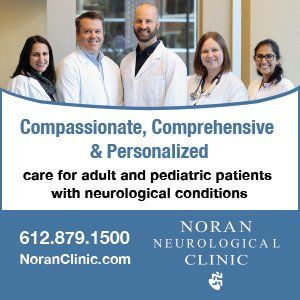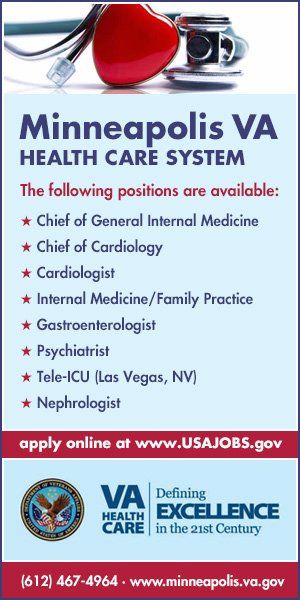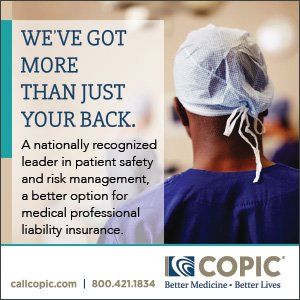e’re heartbroken. We’re overwhelmed.” These words ran in bold print as an advertisement in the Star Tribune and pleaded for Minnesotans to get vaccinated to end this pandemic. It was signed by nine CEOs of Minnesota health systems. As an ER physician I want to tell you why we are feeling this way. I have seen more people die this year than in my past 21 years in medicine. The deaths are excruciating to watch as patients literally suffocate. The illness is nothing like the flu. The flu is predictable and short in comparison. Covid hits some people hard, causing illness that feels more like a marathon with day after day of new symptoms. Others are hardly sick at all. The unpredictability and randomness of this disease in combination with the fact that it targets the most vulnerable members of our society, the elderly and minorities, have made it uniquely able to tear us apart as a society.
cover story two
From the Trenches
Covid is not a hoax
BY Carolyn McLain, MD
In the line of fire
We are heartbroken and overwhelmed because for the past 2 years, we have been working extra hours, managing the rise in overdoses and alcoholism, struggling to give patients who don’t have Covid the care they need while our hospitals have been overwhelmed with Covid admissions, and telling devastated families in a cold parking lot that their family member has died. As the pandemic drags on, caregivers are in the direct line of fire for people’s anger and despair at the government, the pandemic, masking, social injustice, school closures, and all of the confusing messaging about public health and Covid that began as soon as it was announced that the virus had been found in our country. The pandemic has put caregivers in the middle of a political maelstrom that our years of training did not prepare us for. Caregivers are not, nor should they be, politicians.
Politics has made patients question if they can trust physicians.
An erosion of trust
For the past 15 years, Dr. Google has been in competition for our jobs. But today, it is not just Dr. Google. It is Fox News, CNN, YouTube, Facebook and a myriad of other social media sites that seek to replace our expertise. It is becoming increasingly common for patients to tell me not only their self diagnosis but how to manage it. It is similar to me giving the airline pilot a few tips on how to reach our destination faster from my online “research” prior to the flight. I have had patients refuse the Covid swab due to the danger of the chemicals in the swab itself. I have had a patient arrive wrapped head to toe in Saran Wrap, wearing swimming goggles, a shield and multiple masks for fear of getting Covid in the ER. I have had patients deny that their symptoms were caused by Covid and refuse oxygen and decadron because they believe I am offering these treatments in order to make money. It’s hard not to take these comments as personal criticism. After all, I am the one ordering the “toxic swab” and the one who is getting paid for providing the service.
Early in the pandemic, I had a patient surreptitiously video record our interaction. He had wanted hydroxychloroquine and azithromycin. As these were not proven therapies and he was in a low risk group for serious disease I explained my rationale for not prescribing these. The next day as I arrived at work, a news crew was outside the ER. Our interaction had been edited and was shown on the evening news.
The erosion of trust in medicine has accelerated dramatically over the past two years. The pandemic has revealed the scientific process to the public and it hasn’t gone over well. Science is messy. We work with imperfect information and modify our protocols as we learn more, often completely abandoning what we did before. That is why medicine is a “practice,” not a performance. At the beginning of the pandemic, we knew virtually nothing about this virus. We didn’t even know how it was transmitted. Papers were published and given to the media without peer review. It was like the Wild West because it had to be. This was a brand new disease and it was affecting the entire world. We didn’t have time to do thorough reviews. But everything we did, every mistake we made, was reported and discussed extensively in the media.
Political polarization
In a world that was shut down, the public had nothing else to do but watch the media coverage of the Covid pandemic. It was Team Fauci vs. Team Scott Atlas and the Great Barrington Declaration. This polarization into factions has unfortunately become a daily part of patient interactions. Patients will frequently start a visit by discussing how stressed they are about “the stolen election” or how they are not celebrating the holidays with their family because their Uncle won’t get vaccinated, or how people who don’t get vaccinated are “idiots.” It feels like a test. Patients want to know if I am with them or against them before they decide if they can trust me. When a patient is sick, it shouldn’t matter what team they side with. It shouldn’t be about politics. It should be about a relationship between a doctor and a patient and in order for healing to take place, there has to be trust. Today, politics has made patients question if they can trust physicians. For physicians who consider the field a calling and not a job, this is the heartbreak.
Any patient admitted with Covid stays in the hospital for a long time.
To make matters worse, the hospitals are overwhelmed. It is not simply the number of Covid patients that present to the hospital it is the length of time they stay. Any patient admitted with Covid stays in the hospital for a long time. Some for up to two weeks versus the average patient stay of three days. With hospitals at capacity, ER’s back up and patients that are admitted sit in the ER for days. In rural hospitals, it is even worse, critical patients are unable to be transferred for the care they need because there is no availability. Hence, other healthcare needs, like elective surgeries are cancelled.
We know that widespread vaccination will take the pressure off our hospital systems. This is why the CEOs pleaded with the public to get vaccinated. This has, not surprisingly, been a difficult task. Even before Andrew Wakefield published his now debunked study implying vaccines caused autism, vaccines have engendered public fear and resistance. In the UK, an 1885 protest against the government’s requirement of the smallpox vaccine garnered 100,000 participants. The Covid vaccine arrived in the setting of a large anti-vaccine movement. The argument for vaccination is made harder by the caprice of Covid. Many people don’t get really sick, so why take the risk? It is hard for the public to understand that every person who gets Covid, no matter how benign their individual illness is, increases the risk for a mutation that could be far more devastating to all of us. The vaccine may not be perfect, bit is much safer than Covid itself. Aside from the mortality risk, there’s also risk of hypercoagulability causing pulmonary embolisms, some patients develop long Covid, and any serious case will entail personal lost wages and decreased economic productivity. I get that the risk of any of these things happening to a specific individual is low but so is dying in a car accident, and I still put on my seatbelt.
Maintaining hope
Yes we are heartbroken and overwhelmed but there is still hope. A month ago, I was working an overnight shift in a rural emergency department. On my way to work, my car had broken down and there was no way I was going to make it back to the Twin Cities without getting it fixed. After a long night of managing critical care patients that could not be transferred to other hospitals due to capacity issues in addition to the patients with non-critical but still emergent needs, I was tired. As I drove out of the parking lot, I passed the ever present elderly man who pushes a shopping cart back and forth in front of the hospital that is bedazzled with hand written signs stating “vaccines are bioterrorism.” My car, thankfully, made it the few blocks to the repair shop. Still dressed in my scrubs, the mechanic asked where I worked. After hearing I was an ER physician he expounded on all the reasons he was not going to get the vaccination. “Covid was a hoax.” He’d stored up all his horses’ heartworm medication and could take it if he started getting sick. The whole thing was engineered by the Chinese.
That morning, I was done with work. I just wanted my car fixed and didn’t have the energy to have the discussion. Two hours later, my car was fixed. I asked him how much I owed him. He said, “nothing, it’s on me. Thank you for everything you do.” It was just what I needed. A reminder, that despite the politics of this pandemic, we do still care about each other and our patients still care about us.
Carolyn McLain, MD, is an emergency physician with the Emergency Physicians Professional Association (EPPA) an association of physicians and advanced practice clinicians providing staffing services to hospital emergency departments. She treats patients in hospital settings, in both metro and rural locations. She also helped create and is the medical director at the Urgency Room, an innovative model offering urgent care services at four metro locations and working with nearly 300 doctors across the state.
MORE STORIES IN THIS ISSUE
















